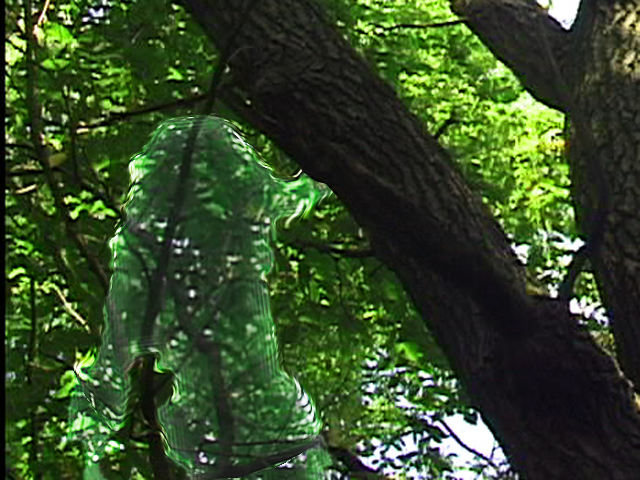The invisibility cloak is coming
It seems that we are closer and closer to getting the invisible cloak. Well, probably not in my lifetime but maybe this century. The whole invisibility cloak thing is very simple in theory, but I assume it is nearly impossible to actually engineer. You have to get a surface that will catch all incoming light and just pass it to whatever is behind itself without distortion. A simple comparison would be a TV and a camera. For example, you would look at the TV, which in turn is displaying the output of a camera mounted on its back side pointing on the opposite direction of the visible side of the screen (screen faces one way, camera the opposite). This way you "see" what the camera sees, right?
Now take that and try to make it the size of particles (think of them as pixels) small enough to completely cover a body of matter. If you take my simple camera and tv example further and actually put this concept to practice, then you are left with a material or surface that simply "wraps" the light around itself and shows you what is behind itself. It would never be truly invisible I don't think, but it would appear somewhat like the Predator in the movie.

People see objects as a result of the light reflecting or scattering off them. This new mixture of materials has "negative refractive" properties that keep light from being absorbed or reflected by the object, allowing only the light from behind the object to be seen. Essentially, the material bends visible light in a way that eliminates the creation of reflections or shadows in much the way water flows around a stone.
The findings, to be released later this week in Nature and Science, were made by scientists at the University of California, Berkeley, led by Xiang Zhang. The research, which was funded in part by the U.S. Army Research Office and the National Science Foundation's Nano-Scale Science and Engineering Center, could have broad applications, including for the military. ... the full whole thing is right here Invisibility cloak on the horizon, scientists say | Cutting Edge - CNET News